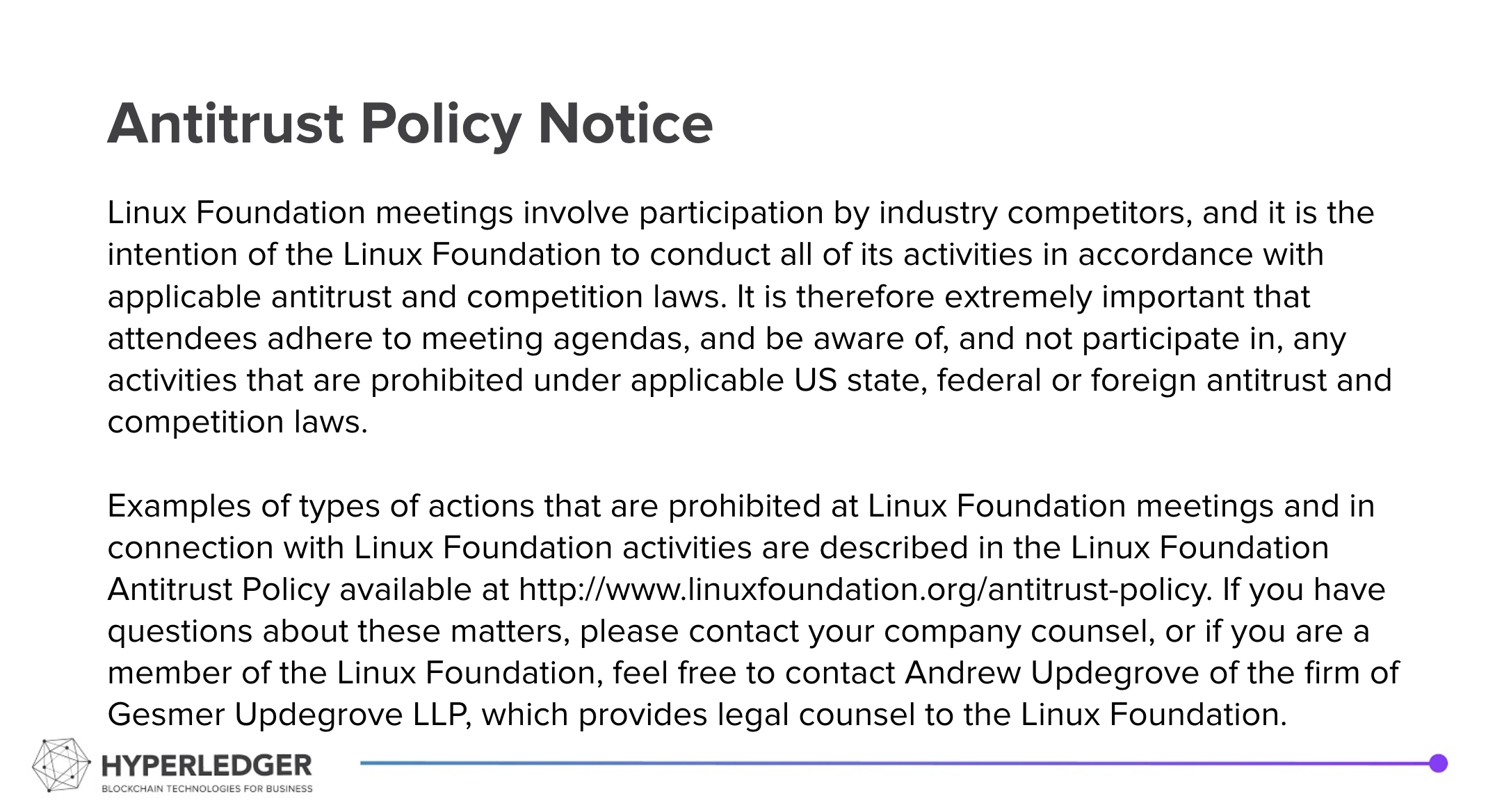...
| Excerpt |
|---|
|
Recording from the call:
...
20210302 Indy DID Method Specification Call Recording
Hyperledger is committed to creating a safe and welcoming community for all. For more information please visit the Hyperledger Code of Conduct. |
|---|
...
Announcements
Attendees
Collaboration Channels
- Current hackmd document
- indy-did-method on RocketChat - https://chat.hyperledger.org/channel/indy-did-method
- indy-did-method repo:
ReSpec vs.SpecUp
...
- From last week's discussion – confirmation of approach:
- Update the NYM to add a "diddocContent" item that is the equivalent of what we proposed would go in the DIDDoc ATTRIB, with assembly left to the client
- Include support for the version_id and version_time resolution parameters.
- Confirm error checking done on the NYM write. See proposal in the hackmd document (valid JSON, no NYM fields, valid DIDDoc)
- What are the security implications of running this code on a node – vulnerability possibility.
- Other options rejected
- Have a single call that gets the NYM and ATTRIB and state proofs for both with same multi-signed merkle root, and leave the assembly to the client.
- Likely choice if extending the NYM is impractical
- Do nothing
- Single call with both state proofs and ledger does assembly
- Write DIDDoc on ledger writes and have state proof for DIDDoc
- Add WRITE_DIDDOC transactiotransaction
- Have a single call that gets the NYM and ATTRIB and state proofs for both with same multi-signed merkle root, and leave the assembly to the client.
- Update the NYM to add a "diddocContent" item that is the equivalent of what we proposed would go in the DIDDoc ATTRIB, with assembly left to the client
- Serialization formats
- Include in document that DIDDocs are JSON-LD
- Three serialization formats in the DID Core spec – let's go with 1 to reduce interop and implementation effort.
- Include in document that DIDDocs are JSON-LD
- Decision on assembly points of concern:
The "nymKeyAgreement" flag- Remove the "content" item and just inline the rest of the ATTRIB?DIDDoc content
- Other Indy Ledger Objects as DIDs (e.g. schema, etc):
- Drummonds proposal: https://docs.google.com/document/d/1f99z4Bf8F-DA8EbkNjInVQv2ncJGPwF_Dp7I7Mfyhqs/edit
- Other options:
- Use the `@context` to indicate what type of Indy object is being referenced.
- Use a GET_DID transaction that uses the local identifier for the different objects and the ledger figures out the doc type and returns the appropriate result – e.g. a SCHEMA, CLAIM_DEF, etc. The existing transactions remain and are used if the client wants. The GET_DID can also be used to return a NYM.
- STATE_PROOF comes back in the reply as currently done.
- Existing transactions
Future Discussions:
...

